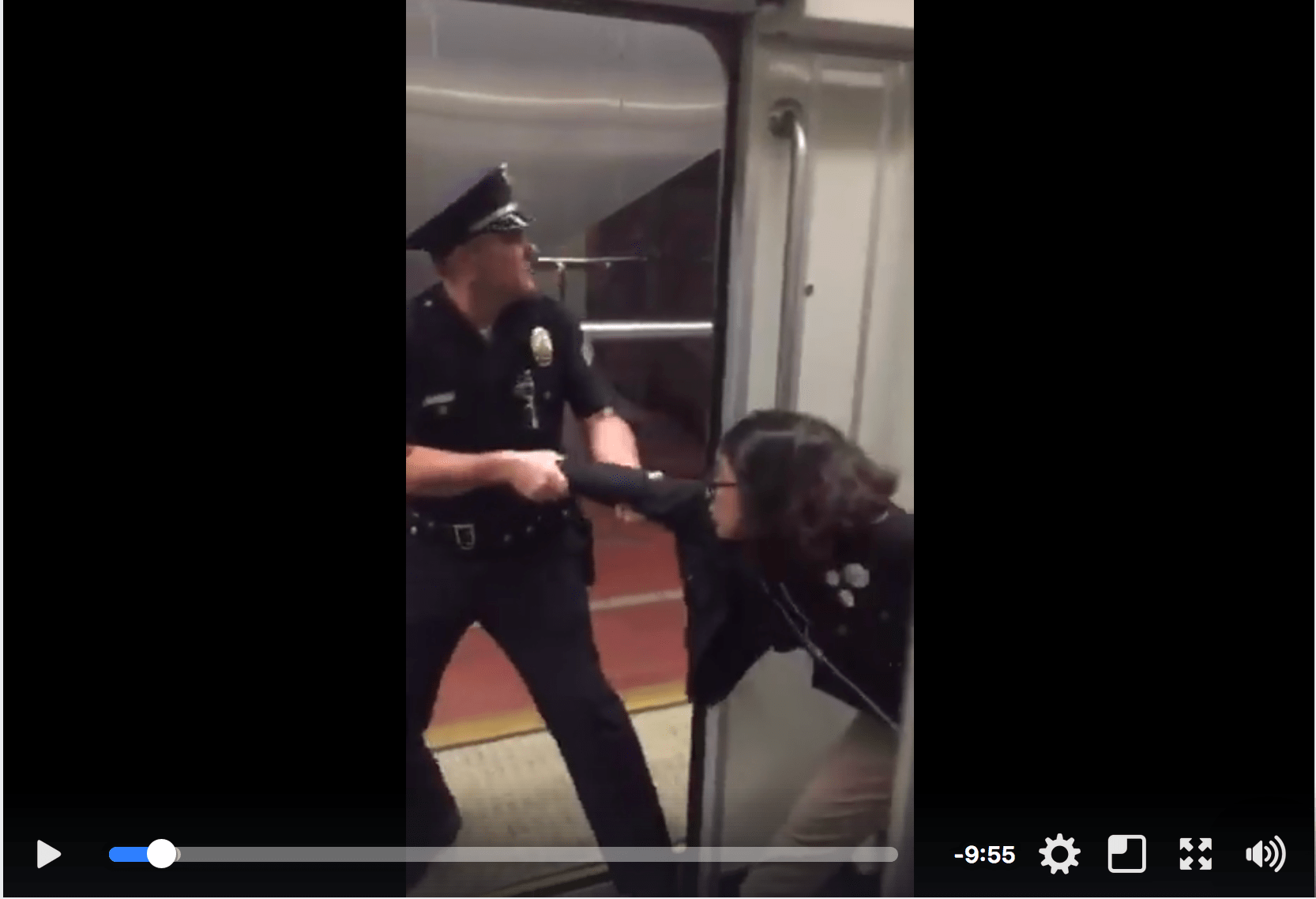Yesterday and today were the first Metro board committee meetings since the murder of George Floyd and the widespread Black Lives Matter protests that resulted - and since Metro's ignominious shutdown of countywide transit service while turning buses over to police to shuttle detained protesters on May 30. At today's Metro Operations Committee, boardmember Mike Bonin announced three motions that could re-work the way Metro polices its transit system. These join an earlier motion by boardmember Janice Hahn, also first heard today, to review Metro police policies and training.
The motions will all be heard at the full Metro board meeting next week - at 10 a.m. Thursday June 25.
Metro currently has a ~$130 million/year multi-agency contract paying LAPD, County Sheriffs (LASD), and Long Beach Police (LBPD) to police its system. Similar to law enforcement throughout L.A. County, transit law enforcement has been problematic, especially for Black and brown youth. Metro law enforcement has criminalized poverty, over-policed code of conduct violations, and in one incident Long Beach Police fare enforcement resulted in a Blue Line train crushing rider Cesar Rodríguez to death.
A major demand of the Black Lives Matter movement has been to defund the police. One big early aspect of this is to remove armed response - which is expensive and deadly - from situations where police are neither needed nor the most effective way to resolve situations. Several cities - including Los Angeles, San Francisco, Albuquerque, and others - are moving toward adopting unarmed responses for various non-violent situations including mental health, substance abuse, and homelessness.
The final text of Bonin's motions should be available tomorrow. Per a press announcement, the Community Safety Approach motion "directs Metro to develop the new policies and approaches in consultation with passengers and community members representative of the agency’s ridership, including but not limited to racial, gender, income, geography, immigration status, and housing status." A draft version of the motion would have Metro shift resources from armed law enforcement to a community-based approach, including:
- transit ambassador program
- alternatives to armed law enforcement response to nonviolent crimes and code of conduct violations
- community stewardship of transit spaces, such as supporting street vending in transit plazas
- Universal Blue Light program - described in a June 2018 Metro report as an emergency call box system to be installed throughout the transit system to improve safety and security
- education about and expansion of fare discount programs
- outreach and services for unhoused individuals
In a press statement, Bonin noted: “Around the country and all over Los Angeles, people are reimagining how to provide public safety. Metro needs to be at the forefront of that, and make changes that assure that all of its passengers feel safe. That starts by acknowledging that we cannot rely on an armed police presence for every issue, and we need smarter, more effective solutions.”
The Bonin motion overlaps somewhat with a more reform-oriented motion by Hahn and boardmembers Hilda Solis and James Butts. That motion would direct Metro to review use of force policies and training by police on the Metro system, including LAPD, LASD, LBPD, and Metro's in-house Transit Security officers. In addition, the Hahn motion asks for Metro to report back with "recommendations on how to further reform policing at Metro and reallocate resources for homelessness outreach." Today, Hahn stated that she also supports Bonin's Community Safety Approach motion.
At today's committee meeting, Bonin announced two other motions in response to Metro's May 30 shutdown and the shuttling of police detainees. One motion would direct Metro to formalize actual criteria for shutting down service, including a notification protocol for getting the word out on any shutdown. The other motion would examine the mutual aid agreements that Metro asserted required them to make buses available to the police for detainee transport - a practice that continued several nights.
Streetsblog will update this post with links to the final motion texts when they become available.
Updated: links to motions:






